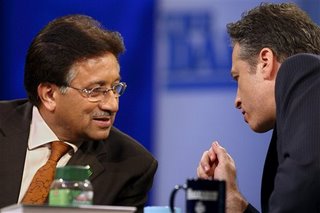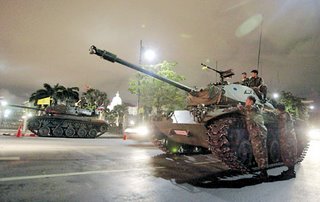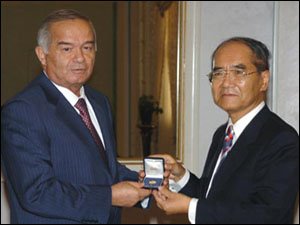 Thailand's King Bhumibol Adulyadej has made his tacit support of his country's military coup d'etat official. The English language Bangkok Post , His Majesty has been quoted as saying:
Thailand's King Bhumibol Adulyadej has made his tacit support of his country's military coup d'etat official. The English language Bangkok Post , His Majesty has been quoted as saying:
"For the sake of stability, we ask the people to be at ease, and to obey the instructions of General Sonthi"
This endorsement, while tepid in translated English, apparently packs enormous weight in Thailand, where The King wields political influence that overspills his somewhat more limited constitutionally mandated role. Indeed, the idea that the Royal Thai Army would depose the now widely detested former Prime Minister
Thaksin Shinawatra without the explicit approval of His Majesty is widely considered to be utterly inconceiveable. With Shinawatra's political capital exhausted, General Sonthi has, quite rightly, deduced that his Majesty would repay the Army's undying loyalty to the throne with public support for the coup. You have to wonder if the monarch directed the Army to launch the coup, or if the generals simply knew that they would receive the King's support?
With strict press censorship now in place, the answers are not forthcoming.
Jot Man continues to blog the coup, live from Bangkok,
right here.
 In a match up nobody demanded, the unshakable Pakistani dictator Pervez Musharraf appears opposite the unwatchable Jon Stewart on the insufferable Daily Show.
In a match up nobody demanded, the unshakable Pakistani dictator Pervez Musharraf appears opposite the unwatchable Jon Stewart on the insufferable Daily Show.



